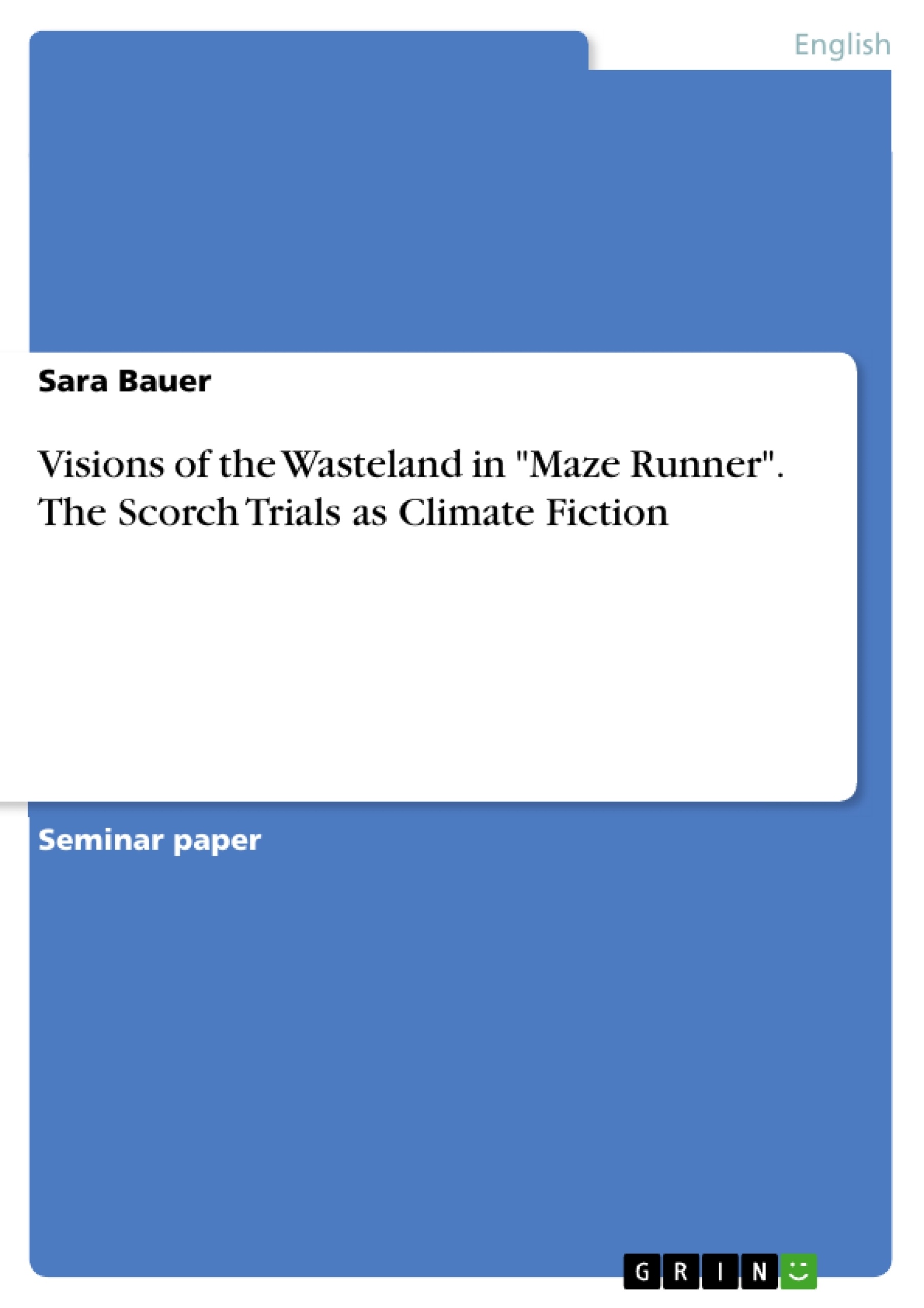This seminar paper will deep dive into the origins of climate fiction, and the imagery used in the novel, as well as compare it to current realities, to unveil how The Scorch Trials serves as an allegory of the pressing issues of climate change and a possible future we might face and why it can be categorized as cli-fi.
Is climate fiction merely a subgenre of science fiction, or could we already classify it as a genre of its own? How do we understand the cultural context of such narratives, and what realities do climate fiction draw from?
A link to James Dasher’s novel Maze Runner: The Scorch Trials is to be made by looking into dystopian narratives and current pressing climate issues portrayed in The Maze Runner: Scorch Trials through climate fiction narration.
Inhaltsverzeichnis (Table of Contents)
- Introduction
- Dystopian and Climate Fiction
- Utopia
- Apocalypse in Science Fiction
- Climate Fiction
- Motives of Dystopian and Apocalyptic Narratives
- The Maze Runner: The Scorch Trials
- Exploration of the Dystopian Setting within the Scorch Trials
- Apocalyptic Setting as a Reflection of Future Realities
- Conclusion
- Bibliography
Zielsetzung und Themenschwerpunkte (Objectives and Key Themes)
This seminar paper explores the connection between the dystopian science fiction novel The Maze Runner: The Scorch Trials and the growing subgenre of climate fiction. The paper analyzes the novel's depiction of a post-apocalyptic world as a reflection of the environmental challenges we face in the real world.
- The evolution of dystopian and apocalyptic narratives in literature.
- The rise of climate fiction as a subgenre of science fiction.
- The use of imagery and narrative elements in The Maze Runner: The Scorch Trials to depict the impact of climate change.
- The potential of climate fiction to raise awareness about environmental challenges.
- The cultural context of dystopian and climate fiction narratives.
Zusammenfassung der Kapitel (Chapter Summaries)
- Introduction: This chapter sets the context for the paper by discussing the increasing relevance of dystopian science fiction and climate fiction in light of growing environmental concerns. It introduces The Maze Runner trilogy as a thought-provoking example of cli-fi.
- Dystopian Narrative and Climate Fiction: This chapter provides an overview of the dystopian narrative and its roots in utopian and apocalyptic literature. It explores the key concepts of utopia, apocalypse, and their relationship to the environmental themes present in climate fiction.
- Utopia: This section traces the concept of utopia from Sir Thomas More's seminal work to William Morris's vision of a sustainable and equitable society.
- Apocalypse in Science Fiction: This section examines the role of apocalyptic rhetoric in climate fiction and its ability to create a sense of urgency around environmental issues.
- Climate Fiction: This section delves into the emergence of climate fiction as a distinct subgenre and explores its potential to shape our understanding of climate change.
Schlüsselwörter (Keywords)
Key terms and themes explored in this paper include dystopian narrative, climate fiction, cli-fi, environmental challenges, post-apocalyptic world, The Maze Runner: The Scorch Trials, apocalyptic rhetoric, utopian concepts, and cultural context.
- Citar trabajo
- Sara Bauer (Autor), 2023, Visions of the Wasteland in "Maze Runner". The Scorch Trials as Climate Fiction, Múnich, GRIN Verlag, https://www.grin.com/document/1430519



